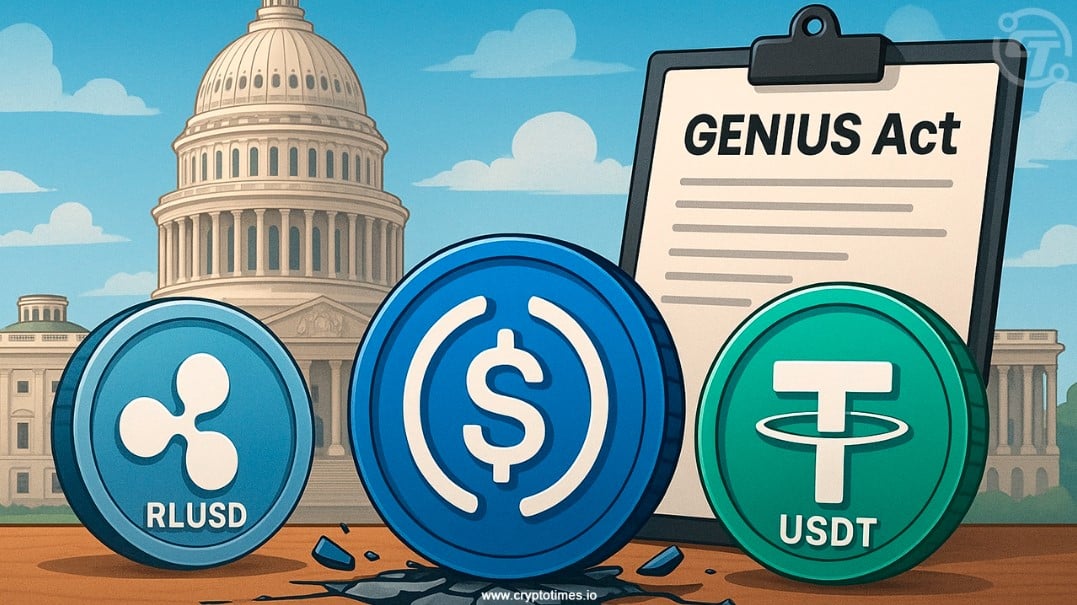Trusted Editorial content, reviewed by leading industry experts and seasoned editors. Ad Disclosure
The Commodity Futures Trading Commission (CFTC) has announced the next phase of the agency’s “Crypto Sprint” initiative, which aims to examine and implement recommendations from the White House.
CFTC Launches New “Crypto Sprint” Phase
On Thursday, CFTC acting chair Caroline Pham announced that the agency would begin the next phase of its initiative to advance President Donald Trump’s vision and is seeking the public’s feedback on the recommendations in the President’s Working Group on Digital Asset Markets report.
Pham announces second phase of CFTC’s “Crypto Sprint”. Source: Caroline Pham on X
Pham highlighted that the Trump administration has “made it clear that enabling immediate trading of digital assets at the Federal level is a top priority,” adding, “The Trump Administration has ushered in a new dawn for crypto, and it’s up to market participants to seize this opportunity to be a part of the Golden Age of innovation.”
The agency has initiated stakeholder engagement and invited all interested parties to submit feedback and suggestions on all recommendations for the CFTC in the White House’s recent digital assets report by October 20, 2025.
“The public feedback will assist the CFTC in carefully considering relevant issues for leveraged, margined or financed retail trading on a CFTC-registered exchange as we implement the President’s directive,” Pham stated.
As reported by Bitcoinist, the CFTC unveiled its “Crypto Sprint” on August 1, which started with a spot crypto trading initiative. Following the Securities and Exchange Commission’s (SEC) launch of its “Project Crypto,” Pham revealed that the agency would work closely with SEC Chairman Paul Atkins and Commissioner Hester Peirce to provide regulatory clarity and foster innovation in the digital assets market.
“I am pleased with the many thoughtful letters from stakeholders in support of the CFTC’s listed spot crypto trading initiative, which, in coordination with the SEC’s Project Crypto, answers President Trump’s call to action for American leadership,” said the CFTC acting chair on Thursday.
Chaos In The Regulatory Agency?
The CFTC’s initiative comes amid rumors of chaos in the regulatory agency. On Friday, Bloomberg, citing anonymous sources, affirmed that “turmoil continues as the agency’s responsibilities, and the potential market risks, are multiplying.”
According to the report, enforcement has significantly slowed, and the commissioner’s shortage has allegedly made it difficult to carry out critical agency business. “The CFTC’s curtailment coincides with a looming expansion of the agency’s responsibilities,” Bloomberg noted, as the highly anticipated market structure bill is expected to shift most of the crypto market oversight to the CFTC.
A White House spokesperson denied that the agency is in disarray, telling the news media outlet that “President Trump has made it a priority to make America the crypto capital of the world, and in doing so has called for the revitalization of the Commodity Futures Trading Commission to play a larger role in securing this promise. Acting Chairman Caroline Pham has done a good job beginning this effort, and the Trump Administration is thankful for her leadership and dedicated public service.”
Meanwhile, the agency also remains in a leadership limbo after the US Senate Agriculture Committee delayed the vote on President Trump’s nominee for CFTC chairman, Brian Quintenz, days before the August recess.
The committee reportedly delayed the vote following a request from the White House. Notably, Tyler and Cameron Winklevoss, Gemini exchange co-founders, allegedly pressed President Trump in July to reconsider his CFTC nominee, arguing that Quintenz wouldn’t “shake up the CFTC enough” and is not “aligned with Trump’s agenda.”
Earlier this week, a group of crypto organizations sent a letter to the US President in support of Quintenz, arguing that installing a permanent chairman is “absolutely critical” to realize the agency’s goals.
“Mr. Quintenz possesses a singular capacity to advance sound and clear regulation that will foster responsible growth and innovation. He is, quite simply, the right person at the right time to lead the CFTC,” the letter concluded.
Bitcoin (BTC) trades at $115,195 in the one-week chart. Source: BTCUSDT on TradingView
Featured Image from Unsplash.com, Chart from TradingView.com
Editorial Process for bitcoinist is centered on delivering thoroughly researched, accurate, and unbiased content. We uphold strict sourcing standards, and each page undergoes diligent review by our team of top technology experts and seasoned editors. This process ensures the integrity, relevance, and value of our content for our readers.




